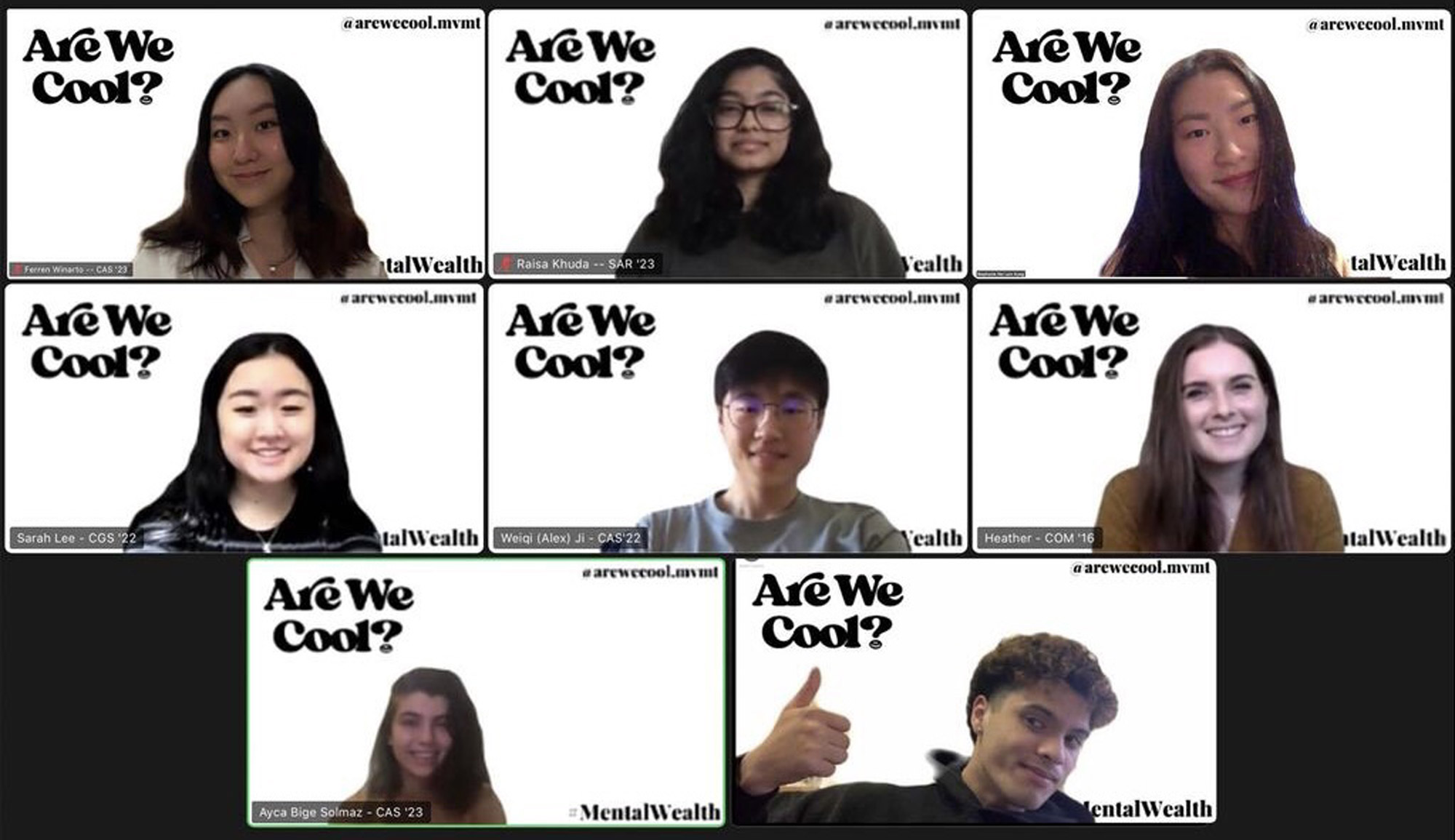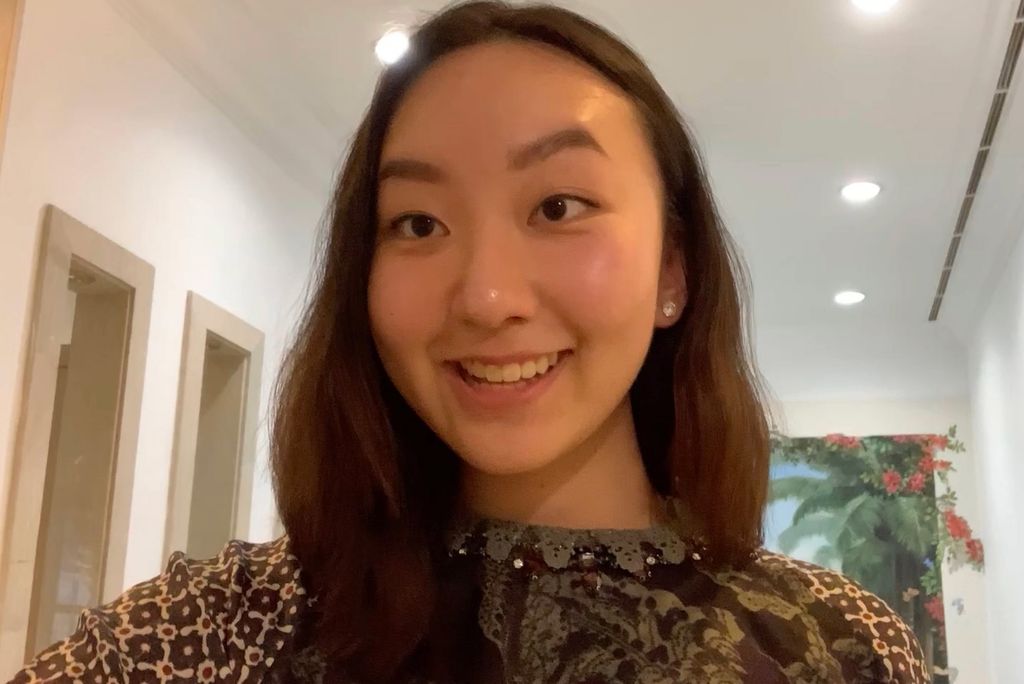Meet the BU Students and Alums Combating Negativity on Social Media

Despite being oceans away from one another, each team member remains committed to their overall vision.
Meet the BU Students and Alums Combating Negativity on Social Media
Ferren Winarto (CGS’21) is trying to make platforms like Instagram less toxic
When someone posts a poll on Instagram, most of the time it doesn’t lead to much besides a few forgettable reactions. Yet after Ferren Winarto saw results roll in to an Instagram poll she posted in January, it led to her dreaming up an entire social media campaign.
Are We Cool? a movement aimed at combating the widespread negativity on social media, started when Winarto (CGS’21) posed a question to her followers on her story: “Is doxing or canceling someone better than educating the offender?”
More than three quarters (76 percent) of her followers said educating was more beneficial, while 24 percent weighed in on exposing the offender. From there, a series of conversations between Winarto and her followers erupted, and Are We Cool? was launched.
After noting the prevalence of cancel culture, cyberbullying, and performative activism (activism done to increase one’s social capital) online, Winarto envisions Are We Cool as a place to cut through the hostility that’s considered commonplace nowadays. The Instagram movement she founded shares informational graphics that encourage using social media more intentionally, while assessing current issues.
“Our campaign focuses on raising awareness about negativity while fusing messages of kindness and empathy to encourage waves of change,” she says. “I know that sounds so cheesy, but that is the heart of our mission.”

The project recently was honored at the 2021 Harvard College Project for Asian & International Relations (HPAIR) Harvard College Conference Speech Writing Competition. Amidst a sea of 300 submissions, Winarto was one of 4 students who received an honorable mention for her virtual, prerecorded speech on the Are We Cool? efforts.
Much like the deep-diving conversations that Are We Cool? seeks to promote, those same types of online exchanges between Winarto and her followers led to new members joining the team. Some of the current team were friends already, while some were added when they found the campaign page coincidentally.
“Ferren posted this story on cancel culture and she and I had a three-hour-long conversation about it,” says Ayca Bige Solmaz (CAS’23). Solmaz is now one of the team’s three graphic designers, working alongside A. J. Munoz (CAS’22) and Stephanie Kung (COM’23).
The network of members even has Boston University alumni, like Heather Goldin (COM’16), who didn’t grow up entrenched in social media like many students.
“I have younger siblings,” Goldin says. “I’ve seen how social media has changed, as well as the negative effects of social media. I think that with Gen Z, that activist culture is becoming more prevalent and Are We Cool? is a representation of that.”
Sarah Lee (CGS’22), Weigi “Alex” Ji (CAS’22), and Raisa Khuda (Sargent’23) round out the eight-member team, who are dispersed as far as Hong Kong, Turkey, and Indonesia. With an international scope fused into the movement’s foundation, Kung says, “we really hope that the topics we touch on and the way we touch on them can extend beyond a western audience.”
In light of the state of global and domestic affairs, the content the current and former students are creating are hot topics for discussion, Winarto says, but are still “infused with messages of kindness.” Among their next projects are combating anti-Asian hate with graphics by Solmaz and addressing the rise of political polarization by Munoz. Kung is working on more lighthearted, inspirational posts that fit between the hard-hitting news.
Thinking further into the future, the cause each member is most passionate about will likely be spotlighted. From body image to mental health, these will serve as talking points among the Are We Cool? community and their followers.
Since the group’s focus is targeting millennials and Gen Z, they do most of their outreach on social media, which means adapting to expand to other platforms. With the widespread boom of Clubhouse and the seemingly never-ending TikTok craze, the movement is on track to expand their presence through the “slow and organic” growth they believe in, Winarto says.
“Be kind online and offline,” their Instagram bio reads, and it’s a phrase each member abides by. As for Winarto’s words of wisdom?
“Let’s break through this us-versus-them mentality,” she says.
Comments & Discussion
Boston University moderates comments to facilitate an informed, substantive, civil conversation. Abusive, profane, self-promotional, misleading, incoherent or off-topic comments will be rejected. Moderators are staffed during regular business hours (EST) and can only accept comments written in English. Statistics or facts must include a citation or a link to the citation.